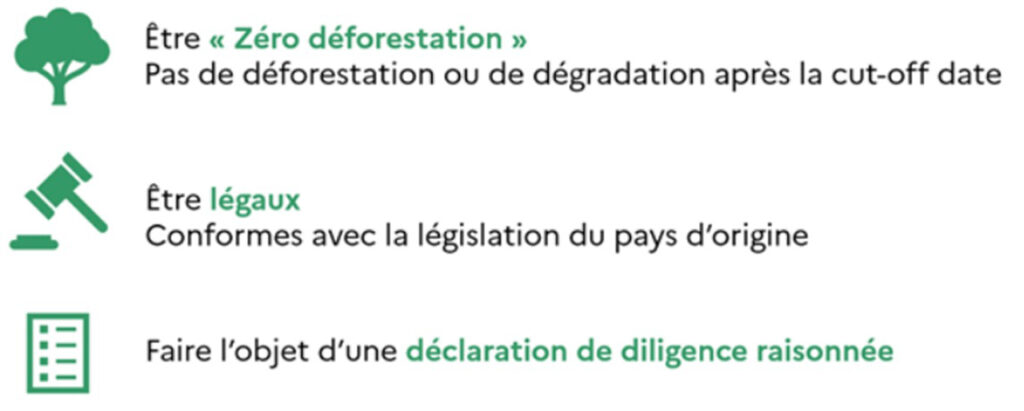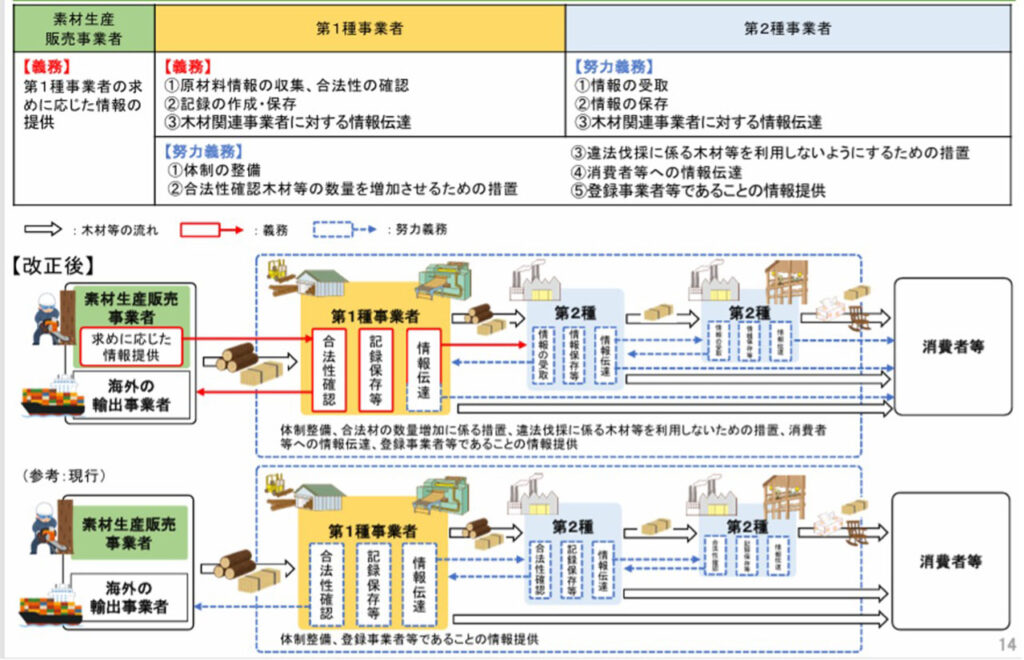EU's new regulation "EUDR" to achieve zero deforestation is coming into effect
Updated by Nozomu Kanemoto on August 14, 2025, 9:13 PM JST
Nozomi KANEMOTO
Leaf Rain Co.
He joined the Japan Forest Technology Association in 2021 and has been involved in several ODA projects in the forestry sector, calculating GHG emission reductions and managing project operations. 2024 he became independent and is currently working in the forestry sector based in France.
Deforestation and degradation are serious problems for the world's forests (*1). In response to this situation, the international community has introduced new regulations and measures. Among these, the EU Deforestation Regulation (EUDR) (*2) adopted by the European Union (EU) in 2023 is attracting attention as a turning point toward a sustainable economy (*3). This movement has become an important theme that cannot be ignored not only by foreign companies but also by Japanese forests and industries.
The EUDR is a regulation aimed at preventing goods produced with deforestation from being distributed in the EU market; for goods distributed, sold, or exported within the EU, companies must ensure transparency in their supply chain and prove that they do not contribute to deforestation.
The products covered are commodities that cause deforestation (forest risk commodities), specifically seven commodities: coffee, cocoa, rubber, palm oil, soybeans, cattle, and wood. In addition to these, derivative products such as leather, charcoal, and printing paper are also included in the regulation. Article 3 of the regulation requires that these products meet the following three requirements in order to be handled on the EU market.
Deforestation-free: No deforestation or degradation has occurred since the date of application.
Legal: In compliance with the laws of the country of origin.
Due diligence declarations have been made (*4)

This regulation was originally scheduled to take effect on December 30, 2024, but has been postponed for one year and will take effect on December 30, 2025 for large and medium-sized businesses and on June 30, 2026 for small and micro businesses (*5). The EUDR is extremely strict, with fines of at least 4% of the total annual turnover in the EU.
*Reference 1:WWF Japan official website "What you can do to stop deforestation today(viewed August 1, 2025)
*Refer 2:Ministry of the Environment official website "Announcement of Study Session on the Outline of EUDR (European Anti-Deforestation Regulation) and Appropriate Procurement of Raw Materials" (Japanese only)(viewed August 1, 2025)
*Reference 3:Official EU website "Regulation - 2023/1115 - EN - EUR-Lex(viewed August 1, 2025)
*Refer to 4:Ministry of Agriculture, Forestry and Fisheries, Guidance Document for Regulation (EU) 2023/1115 on deforestation-free products (2025), p. 15.(Viewed August 4, 2025)
*Refer 5:Ministry of Agriculture, Forestry and Fisheries official website "Response to the EU Regulation on Prevention of Deforestation".(viewed August 1, 2025)
The EUDR is not an entirely new system. Its predecessor is the European Union Timber Regulation (EUTR) (*6), which came into effect in 2013.
The EUTR aims to prevent timber and timber products produced in or imported into the EU from entering the EU market; even in the EUTR, importers were required to conduct due diligence and verify the legality of their sources of supply. In other words, while the EUTR was aimed at preventing illegal logging, the EUDR goes one step further and expands the regulations to include products that cause deforestation, with the aim of achieving "zero deforestation.
The EUDR will be enforced as the core regulation replacing the EUTR. As a transitional measure, the EUTR will continue to apply to wood products produced before the EUDR enters into force on June 29, 2023, until December 31, 2028. On the other hand, for wood products and other covered products produced after the entry into force of the EUDR, the EUDR will apply immediately, at which point the EUTR will be abolished (*7, 8).
*Refer 6:Forestry Agency's official website "Information on legally harvested timber, etc.: European Union (EU)(viewed August 1, 2025)
*Refer 7:European Commission official website "Regulation on Deforestation-free Products(viewed August 1, 2025)
*See 8:European Union official website "Regulation (EU) 2024/3234 of the European Parliament and of the Council of 19 December 2024 amending Regulation (EU) 2023/1115 as regards provisions relating to the date of application Regulation (EU) 2023/1115 as regards provisions relating to the date of application".(viewed August 9, 2025)
In the background, deforestation and forest degradation are major causes of the global climate crisis. According to the Food and Agriculture Organization of the United Nations (FAO), an estimated 420 million hectares of forest were lost worldwide between 1990 and 2020, an area larger than the European Union (*9). Much of this is due to the conversion of forests to agricultural land.
In light of this current situation, more than 140 countries around the world (more than 90% of the world's forested area) including Japan (*10) signed the "Glasgow Leaders' Declaration on Forests and Land Use" adopted at the 26th Conference of the Parties (COP26) of the United Nations Framework Convention on Climate Change in 2021. The EUDR is a concrete institutional embodiment of this global trend.
*See 9:Official EU website "Regulation - 2023/1115 - EN - EUR-Lex(viewed August 1, 2025)
*Refer 10:International Institute for Environmental Economics and IEEI (IEEI) official website, "Forest Declaration draws attention at COP26"(viewed August 1, 2025)
*See 11:Forestry Agency, "Glasgow Leaders' Declaration on Forests and Land Use (provisional translation)," p. 1, in. (viewed August 1, 2025)
Japan is also in a position to assume responsibility for international forest conservation. This is because it is a signatory to the Glasgow Declaration and is involved in the international supply chain. In Japan, the Clean Wood Act (*12) was already enforced in 2017 for timber distribution, imposing an obligation to make efforts to verify the legality of timber. Furthermore, the law was revised in April 2025 to strengthen the legality verification from an effort-based obligation to an obligation for upstream and waterfront businesses such as logging and import/export (see the figure below).

While these national systems have certain affinities with the EUDR, there are also significant differences between them. The legality required by the Clean Wood Act is mainly determined by compliance with the laws and regulations of Japan and the country of origin, and does not directly cover forest biodiversity, human rights, or environmental impact.
On the other hand, in the EUDR, in addition to forest laws and land use regulations, it is also necessary to confirm that the products are in accordance with internationally protected human rights, the principle of free, prior and informed consent, the taxation system of the country of origin, and import/export procedures (*13).
Therefore, the Clean Wood Act alone may not be sufficient to cover the requirements of the EUDR, and it is essential for companies that do business with the EU market to quickly develop a system to comply with the EUDR.
*Refer to 12:Forestry Agency's official website "About the Clean Wood Act System".(viewed August 1, 2025)
*Refer 13:Mori Hamada & Matsumoto, Environmental Law Practice Group and ESG/SDGs Practice Group, "Overview of the Revised Clean Wood Act," Environmental Law / Sustainability Newsletter, January 2025 (viewed August 1, 2025)
The EUDR is indeed a rigorous system for addressing the global issues of deforestation and forest degradation. However, it has been pointed out that the EUDR "imposes excessive obligations on countries and companies that are not causing deforestation and forest degradation" (*14), and in particular, the complexity of reporting requirements and the cost burdens associated with dealing with them pose a major challenge to companies. In the future, it will be necessary to review operations and ensure flexibility under international cooperation.
On the other hand, anticipating such international trends and establishing an EUDR-compliant response system may lead to the establishment of a competitive advantage in the international market in the future. This could be an opportunity to enhance corporate value through the establishment of a sustainable procurement and supply network.
The time is steadily approaching when protecting forests will lead to business opportunities in the global marketplace. (Nozomu Kanemoto, Forestry Consultant, Leaf Rain Co.)
*See 14:Yasuo Tanabe, "Closer Public-Private Dialogue Needed to Ensure Smooth Implementation of EU Deforestation Rules," RIETI (June 13, 2024), webinar report organized by (EUJC)(viewed August 1, 2025)